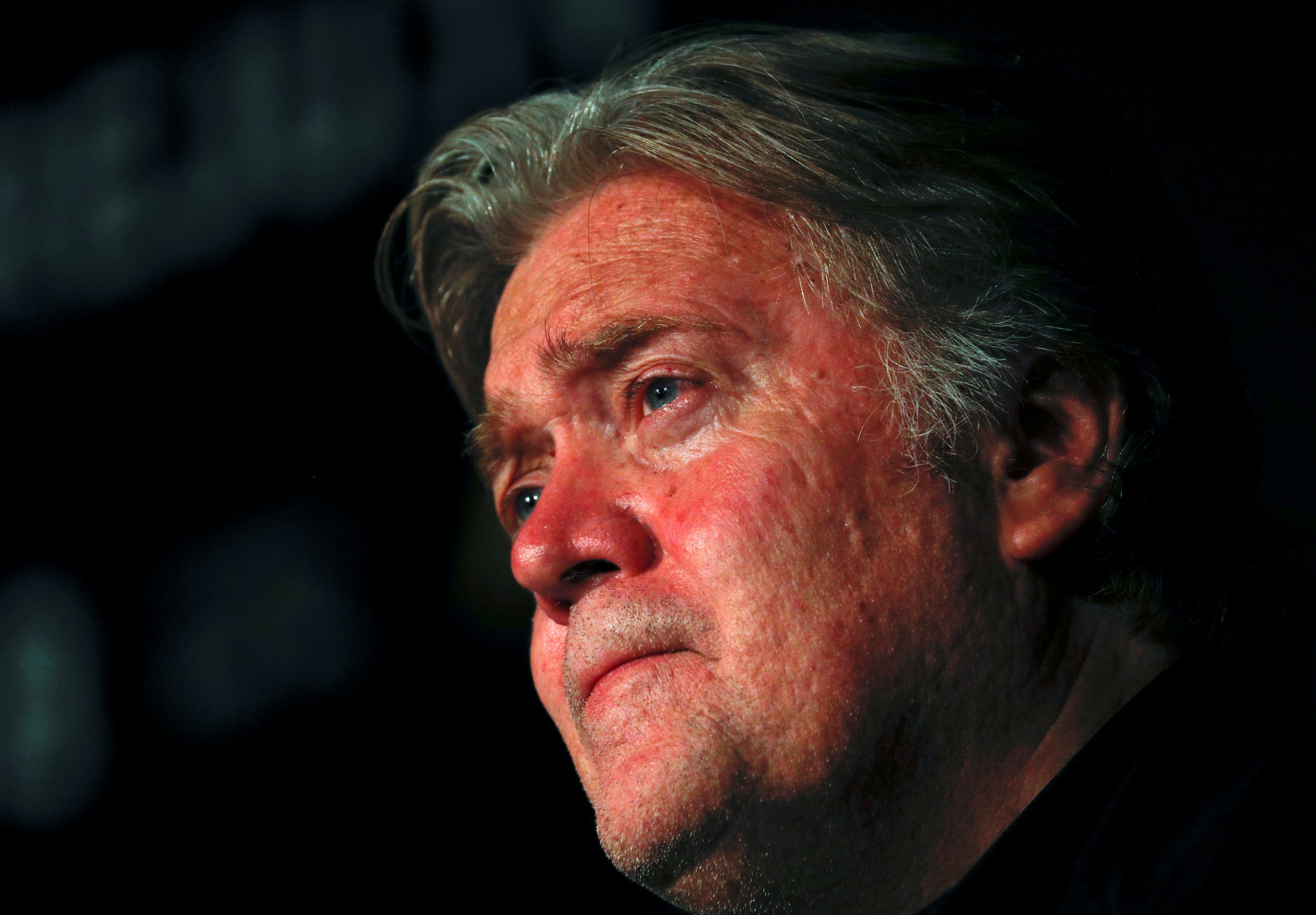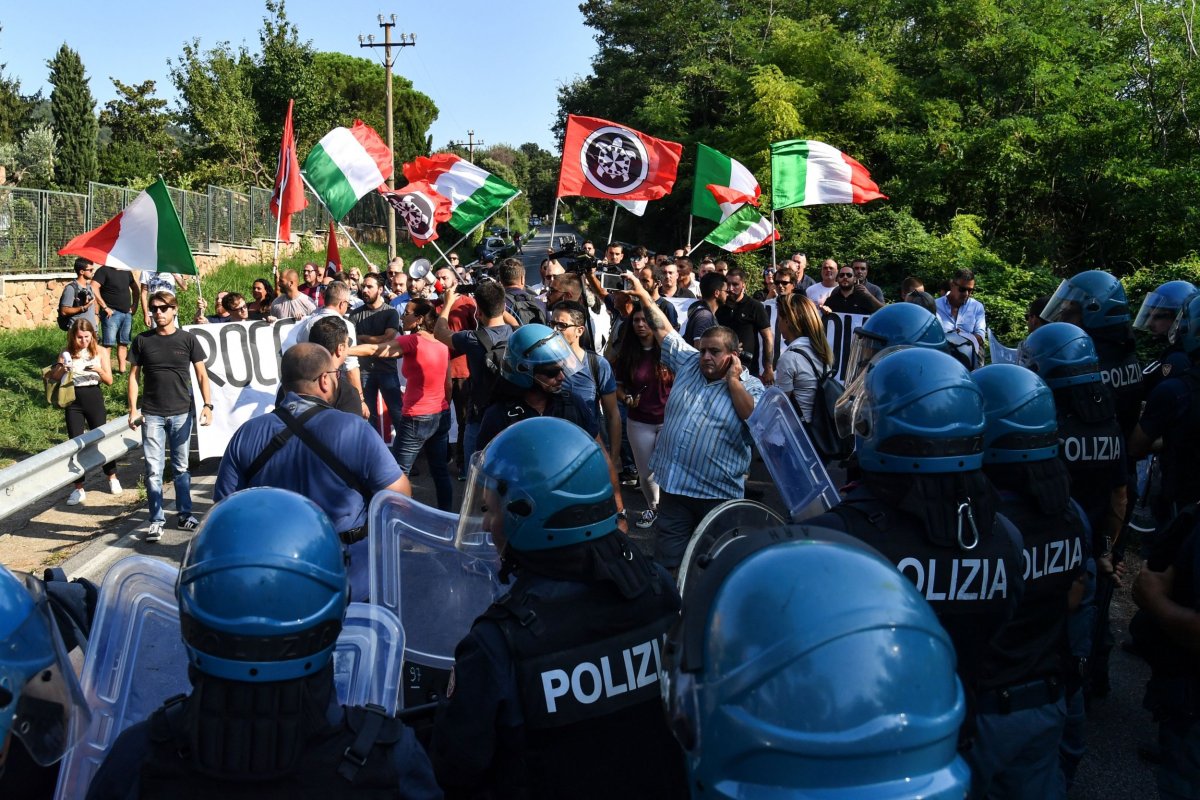
Steve Bannon, a former chief strategist in the administration of President Donald Trump, continued his efforts to create a pan-European far-right movement. He promised to establish "war rooms" to help extremist parties in next year's European Union parliamentary elections.
While speaking at the congress of the Italian far-right Fratelli d'Italia party Saturday, Bannon said a continentwide movement was required to defeat traditional political parties and foment a populist revolution, Agence France Presse reported.
"We will provide and do pollings and data analytics and set up war rooms that people need to win elections," Bannon told the congress in Rome. The 64-year-old, who had previously said being called racist was a "badge of honor," has increasingly spent time in Europe since he was dismissed from the Trump White House in August 2017.
Bannon said he was planning to set up a foundation based in Brussels called "The Movement," which he hoped would boost the far right in the 2019 elections. Though European right-wing leaders have been hesitant to throw in their lot with the controversial American, Bannon maintained that the continent's extremists—whom he called "nationalist patriots"—would become Europe's new political elite.
The former White House strategist told Politico that Italy—ruled by a populist coalition headed by the Five Star Movement and the League—was now at the "center of the political universe."
"Brexit, Trump, the elections here in Italy—they are all pieces of the same thing," Bannon told the audience Saturday, according to USA Today. "They give the little guy a voice. They reject what the elites have been hoisting onto us. And they show we are tired of hearing that if we want to protect our countries, our way of life, it means we are racists, nationalists and xenophobes."
Bannon said he intended to increase his participation in European politics after the U.S. midterm elections in November. "I am going to work to make sure that in the U.S., the cultural Marxists and socialists will not win a victory in November, that President Trump will not be impeached, and then I intend to spend 80 percent of my time in Europe," he explained.

He claimed the continent's "entrenched powers" are not afraid of prominent right-wing leaders, but rather: "They are afraid of the people like you who voted to make a change in their country's fortunes."
Bannon suggested that next year's EU elections would give voters the chance to return a government "that's not socialist," ignoring or unaware of the fact that conservative parties have dominated the EU Parliament for the past 20 years.
But despite his high profile in the U.S., several right-wing groups in Europe have rejected his proposal. The Austrian Freedom Party, part of the country's ruling coalition, which has faced numerous accusations of anti-Semitism, said it was not interested in his help.
"We want to forge alliances in Europe, but we do it independently of the U.S., Russia or anyone else," said party leader Harald Vilimsky. "We want to grow, expand on our own and develop our program and ideas on our own, but surely not under the leadership of someone active in the United States," he explained.
Britain's U.K. Independence Party has also said it would not take part in Bannon's project, according to Reuters. Last week, leader Gerard Batten said of Bannon, "I'm not quite sure what he is proposing across Europe, but UKIP doesn't fit into that. UKIP is a British party that is going to pursue aims for the British people."
And in France, Jérôme Rivière of Marine Le Pen's far-right National Rally party said Bannon had no place in European politics. Rivière, who met with Bannon in London, said his party "rejects any supra-national entity and are not participating in the creation of anything with Bannon," reported Politico.
Uncommon Knowledge
Newsweek is committed to challenging conventional wisdom and finding connections in the search for common ground.
Newsweek is committed to challenging conventional wisdom and finding connections in the search for common ground.
About the writer
David Brennan is Newsweek's Diplomatic Correspondent covering world politics and conflicts from London with a focus on NATO, the European ... Read more
To read how Newsweek uses AI as a newsroom tool, Click here.








